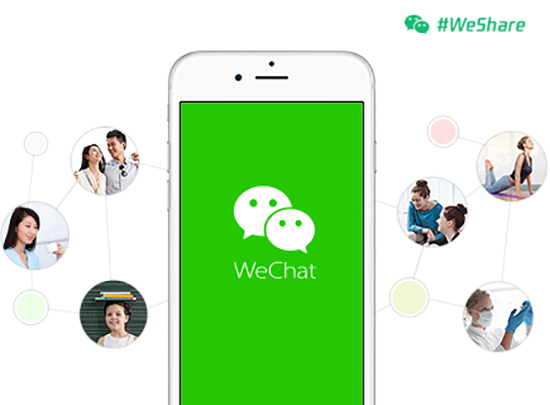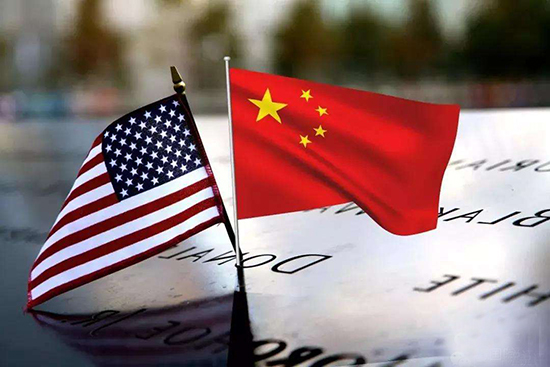Abstract:After announcing that the "Net Network" plan prohibits Chinese apps, BAT cloud services, and telecom operators from operating in the United States, on the evening of Thursday (August 6) local time, US President Trump signed an executive order to ban WeChat ——After 45 days, any American citizens are prohibited from using WeChat transactions. As soon as the news came out, Tencent's stock price fell sharply by 10%, and its market value evaporated 360 billion (HK$, the same below).
After announcing that the "Net Network" plan prohibits Chinese apps, BAT cloud services, and telecom operators from operating in the United States, on the evening of Thursday (August 6) local time, US President Trump signed an executive order to ban WeChat. After 45 days, any American citizens are prohibited from using WeChat transactions. As soon as the news came out, Tencent's stock price fell sharply by 10%, and its market value evaporated 360 billion (HK$, the same below).
Trump said WeChat and TikTok are engaged in an "information war" against the United States
Earlier, according to Bloomberg News, White House adviser Peter Navarro had long stated that US President Donald Trump would take "strong action" against Chinese social media apps TikTok and WeChat, believing that they are engaged in targeting the United States. Information War".
On August 6, U.S. Eastern time, the White House officially issued an administrative order banning WeChat.
The White House issued four statements in a row, all about TikTok and WeChat. Among them, the "Executive Order to Solve the WeChat Threat" and the "Letter to the Speaker of the House of Representatives and the Speaker of the Senate on Solving the WeChat Threat" issued a ban on WeChat.
The White House executive order believes that the spread of mobile applications developed by China in the United States continues to threaten the national security, foreign policy, and economy of the United States. To protect the country, Trump has already taken actions to deal with the threat posed by TikTok, and now needs to take further actions to deal with a similar threat posed by another mobile application-WeChat.

WeChat is a messaging, social media and electronic payment application owned by Chinese company Tencent Holdings Co., Ltd., with more than 1 billion users worldwide, including users in the United States.
Trump said that, like TikTok, WeChat will also automatically collect a large amount of user information, which may allow China to obtain American personal and proprietary information. The United States must take positive action against WeChat owners to protect our national security.
Therefore, Trump issued an executive order to ban WeChat. 45 days after the order is issued, no U.S. person shall conduct any WeChat-related transactions with Tencent or any subsidiary of the entity, or any transactions related to any property under the jurisdiction of the United States.
"American person" refers to any individual or business in the United States.

The specific definition of "transaction prohibited" in the ban is not very clear. For example, does Google and Apple provide related app download services on the app store belong to the category of "transaction"? Considering the app store's sharing mechanism, it is likely to be Constitute a "transaction".
If constituted, it will directly affect the lives of American students and Chinese Americans, who can no longer use WeChat to contact relatives and friends in China.
Tencent's stock price fell 10%, and the total market value was only 4.69 trillion
After the announcement, the share price of Tencent, the parent company of WeChat listed in Hong Kong, fell 10%. As of midday that day, its share price decline narrowed to 6.75%, reported 518 Hong Kong dollars per share, the amplitude exceeded 10%, and the total market value was only 4.96 trillion.
According to wind data, at the close of the previous trading day, the total market value of Tencent Holdings was 5.32 trillion, that is to say, in half a day, the total market value of Tencent evaporated 360 billion Hong Kong dollars.
On that day, the Shenzhen Composite Index and the Shanghai Composite Index fell 1.85% and 1.45% respectively.

According to the "Guangzhou 21st Century Business Herald", affected by this news, not only Tencent was the leading Chinese technology company, but Hong Kong stock technology companies fell generally. JD.com fell 3.07%, Meituan fell 1.27%, NetEase fell 0.73%, and Sunny Optics fell 2.85% and SMIC plunged 7.63%. The QDII fund, which mainly invests in overseas Chinese concept stocks, China Gai Internet (513050) fell 1.63%, and Alibaba Hong Kong stocks also plunged sharply in the morning.
In addition, dragged down by the diving of Tencent Holdings, the Hang Seng Index plunged by more than 3% in the morning and closed at noon by 2.27%.
